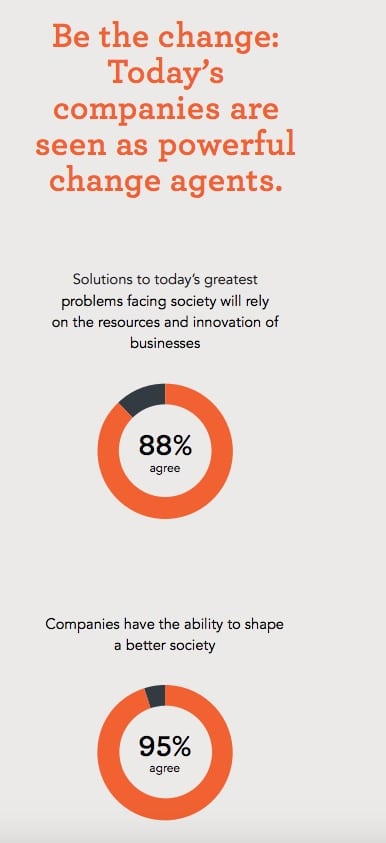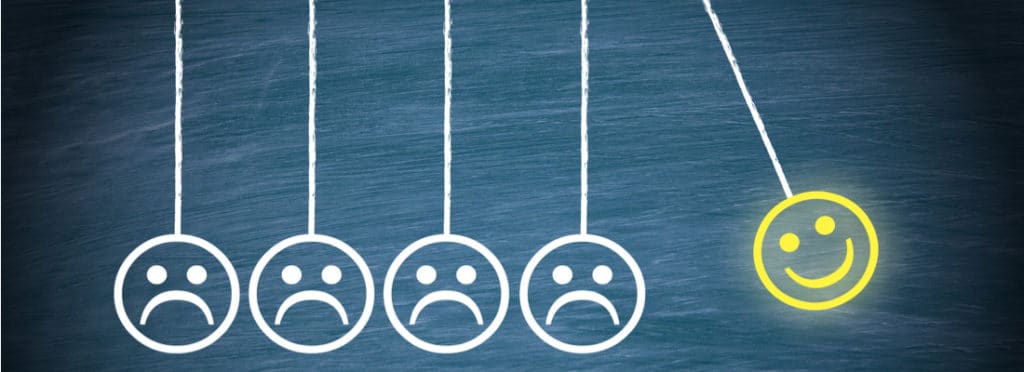In today’s hyper-aware world, companies need to assess the inherent negatives in their business models and address them through innovation. Private sector leadership is urgent, given that many governments and political leaders seem unwilling or unable to serve the common good, according to Barie Carmichael, co-author of Reset: Business and Society in the New Social Landscape (2018, Columbia University Press).
“The activist public is holding companies accountable for the social impacts of their business strategies,” said Carmichael, Batten Fellow at the University of Virginia’s Darden School of Business. “Corporations need to anticipate and address their footprint in an era of rising concerns about obesity, privacy, dwindling vital resources like water, and global warming. They have a clear self interest in ensuring a stable society.”
Reset—co-authored with the late Darden professor James Rubin—cites UPS and Waste Management as models for changing business practices. Both companies had to address inherent negatives: for UPS, its growing carbon footprint and Waste Management for the environmental effect of garbage hauling.

Waste Management likewise exemplifies how to make a strategic pivot. The company’s solution was to offer consulting services to help clients reduce their waste and be smarter about the waste they did generate, with Waste Management diverting that waste through recycling, putting materials back into the life cycle or extracting value from the waste itself. As of November 2016, its stock price had nearly doubled over the previous five years.
Not all companies have the resources or need to fund 10-year projects such as UPS’s ORION. Nevertheless, there are questions that companies of all sizes should answer on their way to identifying and fixing inherent negatives.
Carmichael has developed this framework in collaboration with Lynne Filderman, executive producer of Brands Taking Stands – The Long View, an upcoming conference by 3BL Media.
What do your stakeholders care about?
Running a company requires an understanding of belief systems, which are magnified today more because of social media. Indeed, listening to what stakeholders care about makes it easier to pinpoint inherent negatives.
“What hasn’t changed in this new landscape is the need to be profitable,” Carmichael said. “What has changed is public vigilance on how that profit is made.”
APCO Worldwide’s 2018 study, “Corporate Advocacy in Five Acts,” surveyed 1,000 “informed, judgmental and influential” Republicans and Democrats and found 93% believe the best companies do good for their shareholders and for society and 90% say companies should be involved in addressing social issues such as homelessness and food security.
“Your most valuable customers are increasingly asking brands to join the conversation on the most talked about issues that matter most to them,” write the study’s authors. “Brands that actively participate are seen as current, brave and relevant. Brands that remain silent run the risk of being seen as out-of-touch and irrelevant.”
Do your supply chain and product life cycles reflect those interests?
“I tend to be pragmatic because I grew up in the corporate world,” said Carmichael, who guided Dow Corning Corp., through the 1990s breast implant crisis as chief communications officer. “Start at your line of business and the potential problems you could create.”
A company’s research into inherent negatives should look at the entire supply chain, from upstream, where the first part or ingredient is made, to downstream, when a consumer no longer wants or needs the product.

Even though consumers’ eyes are on the big brands, small- and mid-sized businesses also need to assess where they fit into the larger scheme.
“If you’re an SME, then you should develop sustainable products because large corporations are expecting you to do that,” Carmichael said, noting Danone’s April 2017 acquisition of WhiteWave, a maker of plant-based foods and beverages. In a press release, Danone CEO Emmanuel Faber said: “Danone and WhiteWave are a perfect match to build a global leader leveraging consumer trends and expectations for healthier and more sustainable eating and drinking choices.”
Are you sharing solutions?
In a world with complex problems, no one company can go it alone. From UPS to Mars Wrigley and TD Bank, companies will share their corporate social responsibility initiatives to “lift all companies up,” said Filderman, who is organizing the 3BL Forum (it stands for Triple Bottom Line – People, Planet, Profits).
For example, Timberland has launched an initiative to plant millions of trees in Haiti to reverse decades of deforestation and grow sustainable crops including organic cotton. The company is sponsoring Smallholders Farmers Alliance, a Haitian non-profit, whose board includes executives from Samsung Electronics North America, Wynne Farm Nature Reserve and UNICEF.
While traditional cotton farming has adverse environmental effects (an inherent negative for any apparel company), a feasibility study concluded that sustainable farming would be a viable economic proposition if led by the local community. Timberland has committed to purchasing up to one-third of its annual global cotton supply from the farmers subject to price, quality and volume, according to its website.
“We’re seeing many companies going beyond their bottom line to look at the world around them, their footprint, and relationships,” Filderman said. “They’re catalysts for change.”





Join the conversation